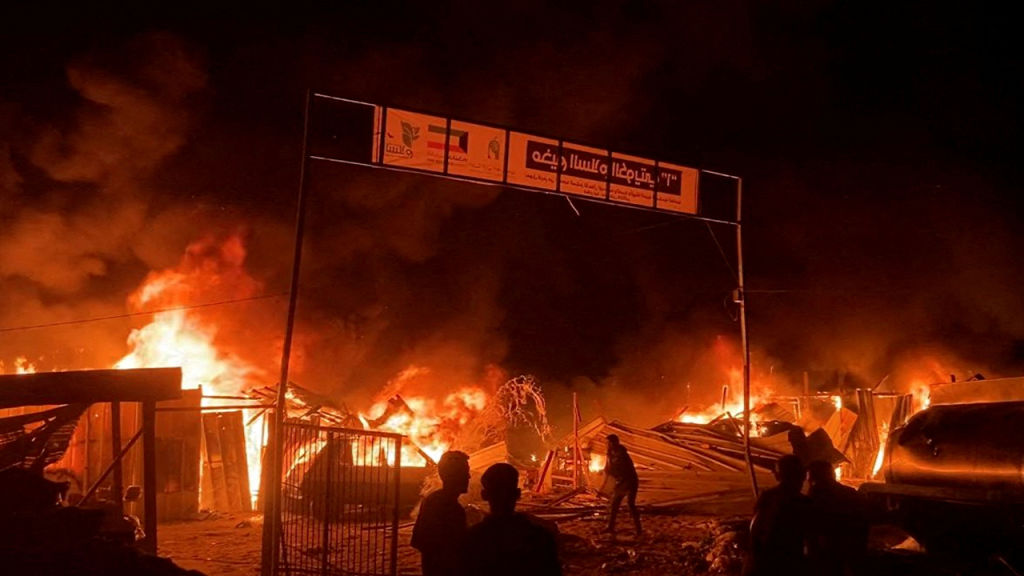Israeli Prime Minister Benjamin Netanyahu and the country’s military denied allegations that the air force aimed to harm civilians in a strike that killed two senior Hamas leaders in Rafah on a day when Hamas launched missiles into densely populated areas of Israel. Reports vary on the number of civilians killed, with the Hamas-run health ministry claiming at least 45 deaths. Netanyahu emphasized that efforts were made to evacuate non-combatants and minimize harm to civilians, promising an investigation into the incident. The IDF stated that precautions were taken to prevent harm to uninvolved civilians during the strike, including aerial surveillance and precise munitions deployment.
The Biden administration’s National Security Council expressed sadness over the civilian casualties in Rafah but recognized Israel’s right to target Hamas and acknowledged the deaths of two senior terrorists. However, they urged Israel to take all possible measures to protect civilians and assured active engagement with the IDF to investigate the incident. The IDF conducted a strike in Rafah targeting significant terror targets, including senior Hamas leaders responsible for attacks in Judea and Samaria. The statement by the IDF highlighted that the strike was based on prior intelligence information and aimed at specific targets with reduced warheads, refuting claims of excessive force or targeting of non-combatants.
Hamas, known for launching rockets at Israeli civilians, claimed responsibility for firing on Tel Aviv in response to Israeli strikes that resulted in civilian casualties. The EU and the U.S. consider Hamas a terrorist organization due to its history of attacking civilians. The UN special coordinator for the Middle East peace process condemned the Israeli airstrikes in Rafah, expressing concern over the deaths of women and children seeking shelter in the area. IDF spokesman Peter Lerner discredited Hamas sources that inflated casualty numbers and falsely claimed the strike took place in a humanitarian zone.
The incident in Rafah sparked international attention and controversy, with conflicting reports on the number of civilian casualties and the circumstances of the strike. While Israel maintained its right to target Hamas leaders responsible for terrorist activities, concerns were raised about the impact on civilians and the need for investigations to determine the cause of civilian deaths. The IDF emphasized that steps were taken to avoid harm to civilians, and an independent body was tasked with investigating the incident to ensure accountability.
The deaths of senior Hamas leaders in the Israeli strike raised questions about the ongoing conflict between Israel and Hamas and the broader implications for peace and stability in the region. The recent escalation of violence highlighted the complex challenges faced by both sides in balancing security concerns with humanitarian considerations. International efforts to address the situation and prevent further civilian casualties were emphasized, with calls for both parties to engage in dialogue and seek peaceful resolutions to the conflict.
Overall, the incident in Rafah underscored the complexities and challenges of the Israeli-Palestinian conflict, with calls for greater respect for human rights and protection of civilians on both sides. The need for accountability, transparency, and dialogue was emphasized as essential elements for achieving a lasting peace in the region. Despite the tragic loss of civilian lives, efforts were made to investigate the incident and prevent similar tragedies in the future, reflecting a commitment to upholding international humanitarian law and promoting a peaceful resolution to the conflict.


